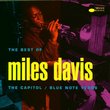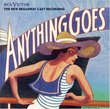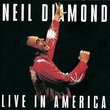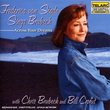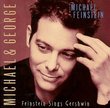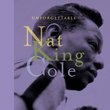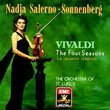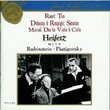| All Artists: Strauss, Schwarzkopf, Ackermann Title: Elisabeth Schwarzkopf ~ Strauss - Four Last Songs, Capriccio, Arabella (Great Recordings of the Century) Members Wishing: 0 Total Copies: 0 Label: Angel Records Release Date: 10/25/1990 Genres: Pop, Classical Styles: Vocal Pop, Opera & Classical Vocal, Historical Periods, Modern, 20th, & 21st Century Number of Discs: 1 SwapaCD Credits: 1 UPC: 077776100128 |
Search - Strauss, Schwarzkopf, Ackermann :: Elisabeth Schwarzkopf ~ Strauss - Four Last Songs, Capriccio, Arabella (Great Recordings of the Century)
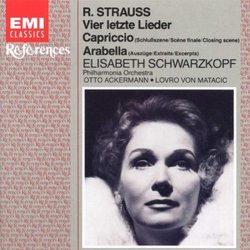 | Strauss, Schwarzkopf, Ackermann Elisabeth Schwarzkopf ~ Strauss - Four Last Songs, Capriccio, Arabella (Great Recordings of the Century) Genres: Pop, Classical
|
Larger Image |
CD DetailsSimilar CDs
Similarly Requested CDs
|
CD ReviewsAn exhilarating and magical performance! Manuel Reguillo-Cruz | 04/15/2000 (5 out of 5 stars) "Elisabeth Schwarzkopf has been accused of just about every misdeed. Some of her critics and detractors say that she is mannered, that they can't listen to her performances because of her fastidious care for words, that she was a Nazi, that her perfectionist husband, EMI's musical artistic director and genius Walter Legge, reduced her to a master-slave relationship, that she was rapacious when pursuing her musical career, that she was Goebbels' favourite in Berlin and became his lover...If she were mannered there would not be so many GREAT RECORDINGS OF THE CENTURY due to her in the EMI catalog. She was Furtwängler's favorite soprano; he even insisted in accompanying her on the piano for an all-Wolf Salzburg Liederabend; she was sought-after by pianists of the stature of Walter Gieseking, Edwin Fischer, Giorgio Favoretto. She sang in performances with Karajan, Böhm, Szell; she mingled her voice with, for example, Ferrier's, Seefried's, Tauber's, Gedda's, de los Angeles', Fischer'Dieskau's. And she was deeply attached and identified with Gerald Moore, who so adored the soprano.If she performed some deeds in Nazi Germany; if she was rapacious, or Goebbels' mistress, or a "slave" in her marriage, who are we to judge her? Thanks to her ambition is that we have the richness of her recordings, and the musical world is illuminated with her sparkling interpretations.I apologise for this digression, but I considered it important as a context for this recording.Dame Elisabeth sang Strauss' Four Last Songs probably more than any other song cycle, either on stage or in the recording studio. There are three EMI recordings, this is the earlier one, with Ackermann and the Philarmonia; there is the one with Szell and the Berlin RIAS, and the one included in the commemorative set of Schwarzkopf's 80th birthday, "Umpublished Recordings", with Karajan and the Philarmonia.My favorite is this one because it shows a younger Schwarzkopf, more natural, spontaneous, with more power at her command, and with complete identification with conductor who very easily follows her or viceversa in a perfect match of voice and orchestral playing, as is the case with Beim Schlafengehen. The text in which Strauss based this song is Hermann Hesse's. Listening carefully to Schwarzkopf's enunciation one wonders at what a marvelous story-teller she was. Yes, I do prefer this recording to the other two. With Szell, Schwarzkopf was 53 years-old, and this particular song had to be transposed 1/2 tone down.Yes, thanks to her "rapacious" careerism the world knew what a true artist is. With her one has to know what she is singing, what she is saying, what she is telling, what stories she is narrating, what worlds she is referring to.I can only be grateful to Dame Elisabeth for this sublime recording which is indeed, as the label says, a Great Recording of the Century." Schwarzkopf's Richard Strauss' opera and lieder is wonderful Manuel Reguillo-Cruz | 02/27/2001 (5 out of 5 stars) "There are three recordings of Elisabeth Schwarzkopf's Four Last Songs. The first one is this one, and the second is the live recording with Herbert von Karajan, and the other is the famous and considered to be the best one: with Szell from EMI. Yes, I agree with the third one is very excellent. But this one with Ackerman has its own charm. Schwarzkopf's voice is much beautiful than that of third recording. If you dislike the third recording, this one may be your favorite.And we can hear the closing scene of "Capriccio." Recently, EMI has reissued the complete recording of it starring Schwarzkopf. I can enjoy hearing this recording, especially the recitativo at first. And the most important point of this recording is the hornist: Dennis Brain. Schwarzkopf and Brain were very wonderful. (Speaking of the complete recording of "Capriccio", Dennis Brain didn't attend at this recording.)When it comes to "Arabella", it was originally recorded as "Highlight album". Schwarzkopf's Arabella is as wonderful as that of Lisa Della Casa.I think this recording is recommentable for anyone who loves Richard Strauss' opera and Elisabeth Schwarzkopf. If you aren't fan of them, you try it." Perfection stephen sittler | oak lawn, il United States | 02/19/2006 (5 out of 5 stars) "Here are pretty good short poems; given a very good setting-to-music by Strauss ("I am not a first-class composer, but I am a first-rate second class composer"); performed to perfection by Schwartzkopf, her voice at age 38(?) still capable of anything. If you've heard her wonderful variety of personas (sometimes two at the same time!) in Brahms' "Deutsche Volkslieder" with Dieskau, also highly recommended, you'll know the distinctive timbre she can impose, almost note-by-note, and her magical, unerring choice of the right one. She owns these songs, making others sound hypnotized or athletic or uncaring. If "Beim Schlafengehen" doesn't bring you close to tears, it will when you're older! Don't miss it, life is too short."
|

 Track Listings (9) - Disc #1
Track Listings (9) - Disc #1
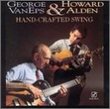
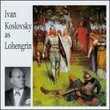

![Vivaldi's Ring of Mystery [With CD]](https://nationalbookswap.com/cd//m/30/0730/80730.jpg)
